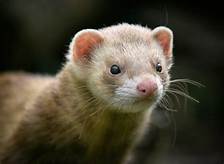Can You Have an Otter As a Pet?
Otters are adorable, playful creatures that have captured the hearts of many people. However, before you decide to bring an otter into your home as a pet, there are several factors you need to consider. This article will explore the pros and cons of having an otter as a pet, as well as the legal and ethical implications of keeping these wild animals in captivity.

Pros of Having an Otter as a Pet
1. Unique and Fascinating Behavior: Otters are known for their playful and curious nature. They are intelligent and social animals that can form strong bonds with their human caregivers. Watching them engage in their natural behaviors, such as swimming, sliding, and playing, can be a captivating experience.
2. Affectionate and Loyal: Otters are affectionate and loyal animals that can form deep bonds with their owners. They enjoy being around people and may even show signs of jealousy if they feel like they are being ignored.
3. Relatively Low-Maintenance: Compared to other exotic pets, otters are relatively low-maintenance. They do not require a lot of space or specialized equipment. A well-maintained enclosure with a clean pool of water and plenty of toys is usually sufficient for their needs.
Cons of Having an Otter as a Pet
1. Legal and Ethical Concerns: In many countries, it is illegal to keep otters as pets. This is because otters are wild animals that can carry diseases and pose a risk to human health and safety. Additionally, keeping an otter in captivity can deprive it of its natural habitat and social interactions with other otters.
2. Specialized Care Requirements: Otters have specific dietary and environmental needs that can be difficult to meet in a domestic setting. They require a diet that is high in protein and low in carbohydrates, and they need access to a clean pool of water for swimming and playing.
3. Destructive Behavior: Otters are naturally curious and playful animals that can be destructive if they are not provided with appropriate outlets for their energy. They may chew on furniture, dig up plants, and cause other damage to your home.
Other Considerations
1. Cost: Acquiring and caring for an otter can be expensive. The initial cost of purchasing an otter can range from a few thousand dollars to over ten thousand dollars. Additionally, you will need to factor in the cost of food, veterinary care, and a suitable enclosure.
2. Lifespan: Otters typically have a lifespan of 10-15 years in captivity. This is a significant commitment, and you need to be prepared to care for your otter for its entire life.
3. Training: Otters can be trained to perform certain tricks and behaviors. However, training an otter requires patience, consistency, and positive reinforcement. It is important to start training early on and to be consistent with your commands.
In conclusion, having an otter as a pet is a complex decision that requires careful consideration. Before you bring an otter into your home, you need to be aware of the legal and ethical implications, the specialized care requirements, and the potential for destructive behavior. It is also important to factor in the cost, lifespan, and training needs of these animals. Ultimately, the decision of whether or not to have an otter as a pet is a personal one that should be made after careful research and consideration.Declaration: All article resources on this website, unless otherwise specified or labeled, are collected from online resources. If the content on this website infringes on the legitimate rights and interests of the original author, you can contact this website to delete it.





